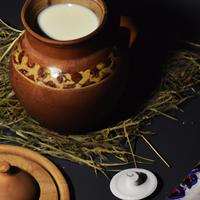
1 serving (244 grams) contains 122 calories, 8.0 grams of protein, 5.0 grams of fat, and 12.0 grams of carbohydrates.

Log this food in SnapCalorie

Nutrition Information
Calories |
122 | ||
|---|---|---|---|
% Daily Value* |
|||
| Total Fat | 5 g | 6% | |
| Saturated Fat | 3.1 g | 15% | |
| Polyunsaturated Fat | 0 g | ||
| Cholesterol | 20.0 mg | 6% | |
| Sodium | 107.0 mg | 4% | |
| Total Carbohydrates | 12.0 g | 4% | |
| Dietary Fiber | 0 g | 0% | |
| Sugars | 12.0 g | ||
| protein | 8 g | 16% | |
| Vitamin D | 120.0 mcg | 600% | |
| Calcium | 305 mg | 23% | |
| Iron | 0 mg | 0% | |
| Potassium | 366 mg | 7% | |
* Percent Daily Values are based on a 2,000 calorie diet. Your daily values may be higher or lower depending on your calorie needs.
Food Attributes
Source of Calories
About Uht milk
UHT milk, or Ultra-High Temperature milk, is a dairy product that undergoes a heating process to sterilize it and extend its shelf life. Originating from Europe, this versatile milk is common in cuisines worldwide where fresh milk storage is challenging. UHT processing involves heating milk to a temperature of 135–150°C for 2–5 seconds, effectively killing bacteria while preserving nutrients. Nutritionally, UHT milk is a rich source of protein, calcium, and vitamins like B12 and D, making it beneficial for bone health and overall nutrition. However, some argue the high heat may slightly reduce certain heat-sensitive nutrients, such as vitamin B1. Available in whole, semi-skimmed, and skimmed varieties, UHT milk caters to diverse dietary needs. Its convenient storage—without refrigeration until opened—makes it a staple in many households and recipes, from beverages to baked goods, without compromising flavor or texture.



